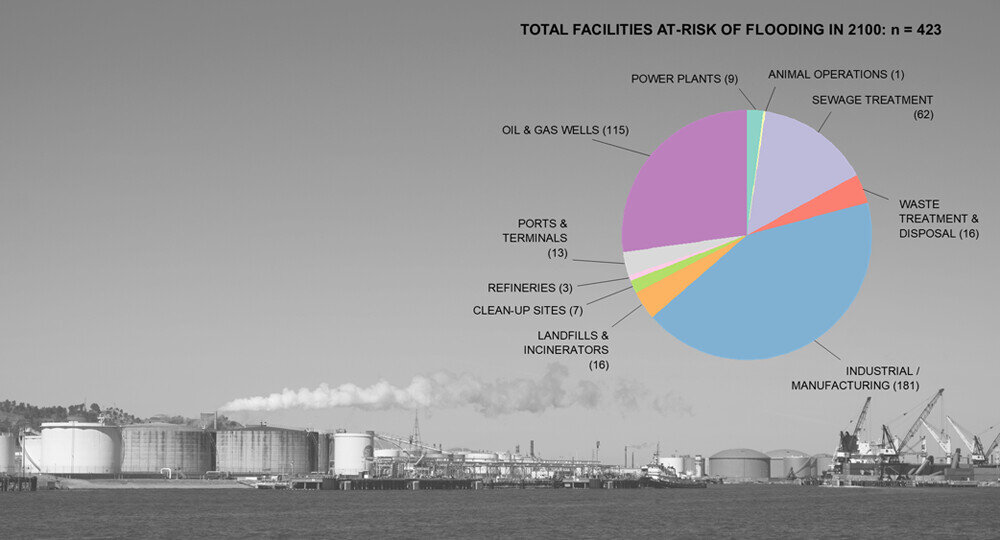

A new study by researchers at UC Berkeley, UCLA, and Climate Central has found that as sea levels rise, hundreds of toxic sites along the California coast are at risk of flooding, with the most significant potential impact on the state’s most marginalized communities.
The study identified 736 facilities at risk of coastal flooding and an additional 173 with projected groundwater encroachment. Furthermore, residents living within 1 kilometer of these sites were more likely to be people of color, living below the poverty line, unemployed or experiencing another form of social disadvantage such as linguistic isolation.
To help individuals better understand the risks of climate change and rising sea levels, the researchers have developed an interactive online tool in English and Spanish that allows users to map toxic sites at risk of coastal flooding by county or individual facility. Users can also overlay indicators of nearby residents’ social vulnerability.
The threat of additional exposures from sea-level rise will only exacerbate the inequities that low-income communities and communities of color already face. Compared to their neighbors, socially vulnerable residents can also face more challenges to evacuate during a flood and often experience social stressors that can make them more susceptible to the health impacts of pollutant exposures.
San Mateo and Alameda counties are projected to host the most at-risk hazardous sites by 2050, but by 2100, Orange County is projected to surpass both as oil and gas wells there and in Los Angeles County face rising coastal flood risks.
In conclusion, as California invests in community resilience to climate change, it is essential that considerations of environmental justice are at the forefront. Climate change amplifies inequality, and sea-level rise will present additional risks of pollutant releases to communities already living with pollution sources in their backyards.
Radionuclides, often relegated to discussions surrounding nuclear energy and radioactive waste, have far-ranging implications for…
Landslides have long been a concern in areas like California, where the unique geography and…
In the vastness of our galaxy, among countless stars, lies a fascinating phenomenon known as…
This week marks a monumental milestone in astronomy as the Hubble Space Telescope celebrates its…
The enigma of dark matter has captivated the scientific community for decades. Although it constitutes…
As individuals age, the likelihood of encountering age-related macular degeneration (AMD) significantly increases, posing a…
This website uses cookies.